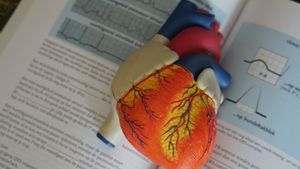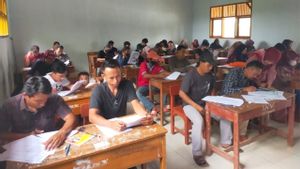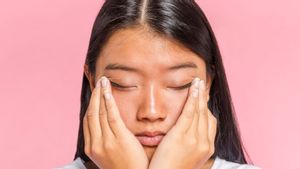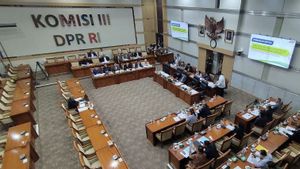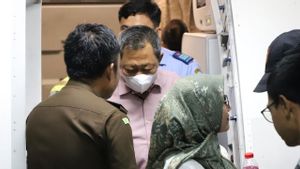JAKARTA - A recent study found that someone who has a sleep duration of less than five hours a day faces a greater risk of developing type two diabetes, including those who have implemented a healthy diet.
Citing Medical Daily on Wednesday, research conducted by a research team from Uppsala University and published at the JAMA Network Open revealed that the risk of diabetes from sleep shortages is not enough to prevent just by eating healthy foods.
" Previous research has shown that a short daily sleep duration can repeatedly increase the risk of type two diabetes, while healthy diet habits such as eating fruit and vegetables regularly can reduce the risk," said research team member Diana Noga.
"However, it is still uncertain whether people who have too short sleep duration can reduce the risk of developing type two diabetes by eating health," he added.
This study uses data samples from UK Biobank. This data comes from the response of participants who were asked about their health and lifestyle and mapped genetically. The research team continued to follow up on data from these participants for more than ten years.
They found that the duration of sleep between three and five hours was associated with a higher risk of developing type two diabetes. Although a healthy diet is associated with a reduced risk, researchers note that individuals who adopt a healthy diet but have a sleep duration of less than six hours each day face an increased risk of type two diabetes.
SEE ALSO:
"These findings suggest that implementing a healthy diet may not reduce the risk of type two diabetes for those with short sleep habits," the research team wrote in its research publication.
Another team of researchers, Christian Benedict, said the results of this study can be considered a reminder that good sleep hours can provide health benefits. According to him, sleep shortage effects can vary between individuals, depending on a number of aspects such as genetics and sleep needs for each person.
The English, Chinese, Japanese, Arabic, and French versions are automatically generated by the AI. So there may still be inaccuracies in translating, please always see Indonesian as our main language. (system supported by DigitalSiber.id)




